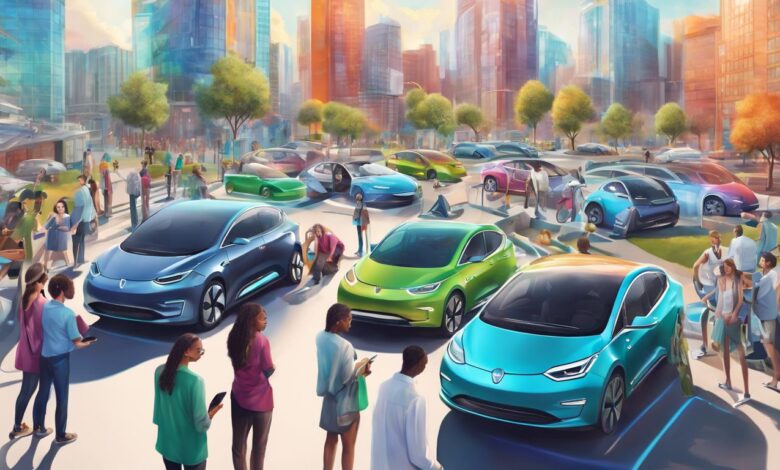Challenges in electric vehicle adoption across different regions

As the European Union grapples with declining electric vehicle sales, the UK faces surging petrol prices, and Australia sees a rise in hybrid car sales, the global shift towards cleaner transportation is met with significant challenges.
The European Union’s plans to increase electric vehicle (EV) adoption as part of its climate change mitigation strategy are facing difficulties. Sales of electric cars in the EU have recently witnessed a considerable decline, particularly in Germany. Despite substantial incentives designed to promote EVs, including tax breaks and financial grants, high prices have continued to be a significant barrier for consumers. According to EU policymakers, the union’s targets to prohibit petrol and diesel cars by the mid-2020s and boost EV sales to 40 million by 2030 are now in jeopardy. The European Commission stresses that achieving net zero emissions by 2045 could be at risk if current trends continue.
Meanwhile, in the UK, motorists are experiencing rising fuel costs, with petrol prices reaching a five-month high of 148.5p per litre and diesel at 157.5p per litre. These price increases have been linked to escalated tensions in the Middle East and are compounded by increasing retailer profit margins. Simon Williams of the RAC and Luke Bosdet of the AA have expressed concerns over these trends potentially leading to even higher prices in the near future.
In Australia, the shift towards electric mobility is taking a different path, with hybrids outselling pure electric vehicles for the past three quarters. According to the Australian Automobile Association, hybrids have become more appealing due to their affordability and lower emissions in comparison to traditional petrol and diesel vehicles. Factors such as high costs and inadequate recharging infrastructure have been identified as major deterrents for Australian consumers considering full-electric vehicles. Despite this, hybrids are being viewed as a transitional solution that can pave the way towards greater adoption of fully electric and zero-emissions vehicles in the future.








